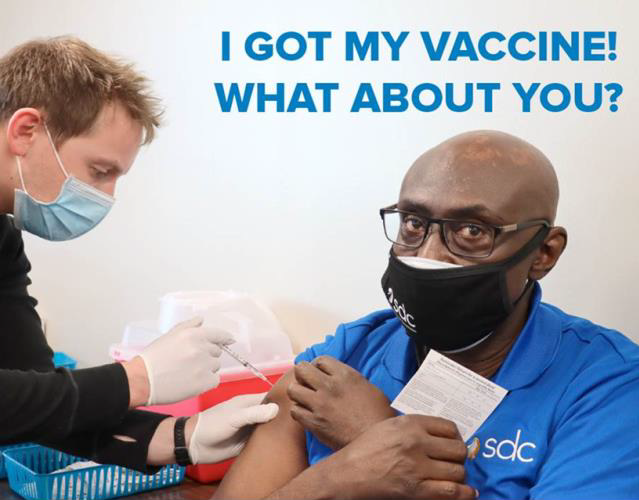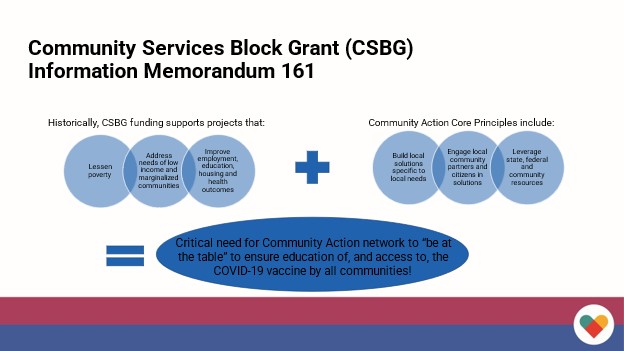By: Anna Sainsbury, CSBG Contract Manager, Wisconsin Department of Children and Families

2-1-1 Wisconsin is a free, easy-to-remember phone number connecting callers with health and human services in their community, including assistance for food, housing and shelter, education, legal advice, emergencies, physical and mental health issues, financial assistance, transportation, and state agency and program information. This year, the list of services is being expanded to include vaccination assistance. Wisconsin’s Community Action network is a close partner with 2-1-1 Wisconsin, and both are now collaborating with Wisconsin’s Vaccination Task Force to connect residents with vaccination information, appointments, and case management.
The Wisconsin Community Action Program Association (WISCAP), Wisconsin’s Community Action Agency state association, hosted a training on May 11 for the entire network called COVID-19 Vaccination Navigation for Case Managers. The training equipped case management staff, who are already helping residents navigate a myriad of resources, to also navigate COVID-19 vaccination; from gaining confidence in the decision to get vaccinated; to obtaining an appointment; and securing transportation to and from that appointment. The training was conducted by a partnership of the CSBG state office, the Wisconsin Department of Health Services Vaccination Task Force, and 2-1-1 Wisconsin. It provided a framework for discussing vaccine confidence, an overview of available resources in our state, and how to navigate clients through vaccination as part of a wrap-around services approach to case management. We also used the space to promote the use of CSBG and CARES Act funding for vaccination education and direct services, and we highlighted the allowances provided to the network in OCS IM 161 (shown below). The equipped case managers with resources for practical implementation of a navigation program, leveraging 2-1-1 as a referral source for a hyper-local, grassroots, trusted community member approach to vaccine education.

The CSBG state office, in partnership with WISCAP, Wisconsin Head Start Association, and Wisconsin’s Head Start Collaboration Office, is also planning a training collaboration using the “WISCAP Wednesday” virtual training format. As vaccines are quickly being approved for individuals under the age of 18, intent is to arm (pun intended) both the CSBG and Head Start networks with tools for conducting outreach on childhood vaccines. In tandem with the offered trainings, the state has asked both networks to host on-site or pop-up clinics through a partnership with Wisconsin’s Department of Health Services and its vaccinator matching program, hoping that Head Start and other Community Action programs will engage a whole-family approach to vaccinations.
Serving on the Vaccination Task Force since January of this year, my worlds collided when I was able to assist the CSBG network in applying for a COVID-19 vaccination outreach grant, which focuses on serving BIPOC and rural, low-income persons with:
- Reluctance to engage with traditional information providers (health care community, local county health departments, government agencies) due to past negative experiences;
- Inability to seek out information and resources due to barriers such as lack of internet access, limited or no transportation, physical inability to travel due to health conditions, and the inability to bear additional travel expenses (lost work time, transportation costs, etc.); and
- Trust of available information sources.
We will continue to work with 2-1-1 Wisconsin, WISCAP, and our Head Start partners to identify additional opportunities for vaccination efforts throughout the duration of pandemic response in Wisconsin. A coordinated effort could help all programs further leverage vaccine rollout funding to create a broader reach within local communities, increase access to vaccine information, and ultimately save lives.





